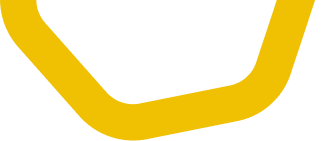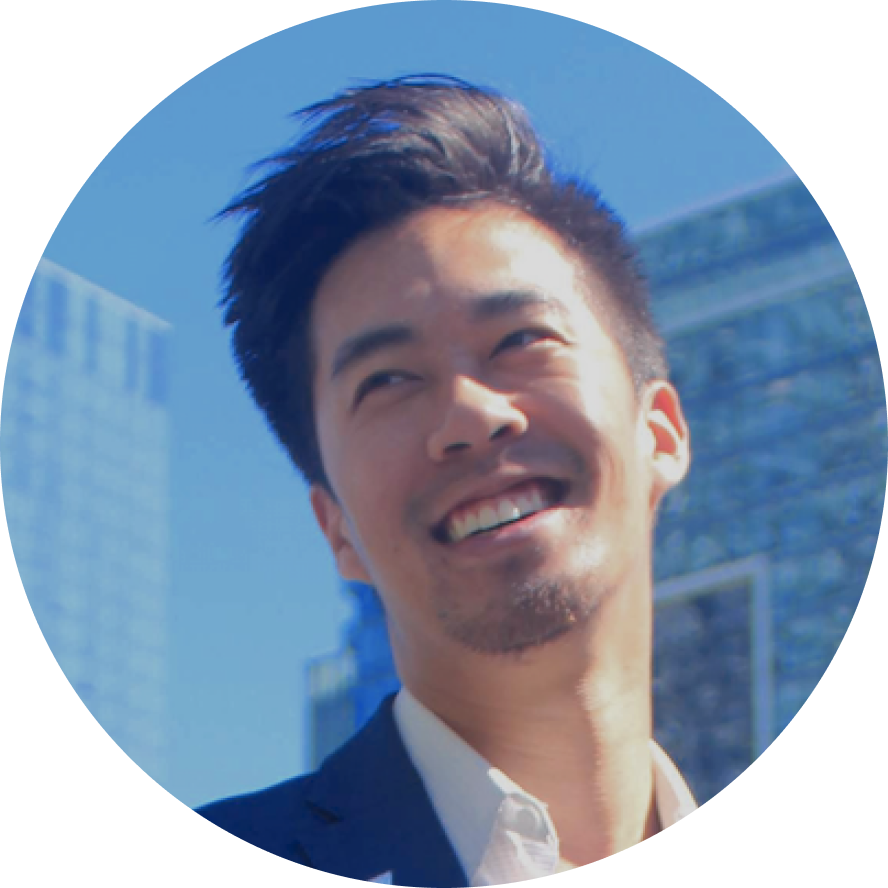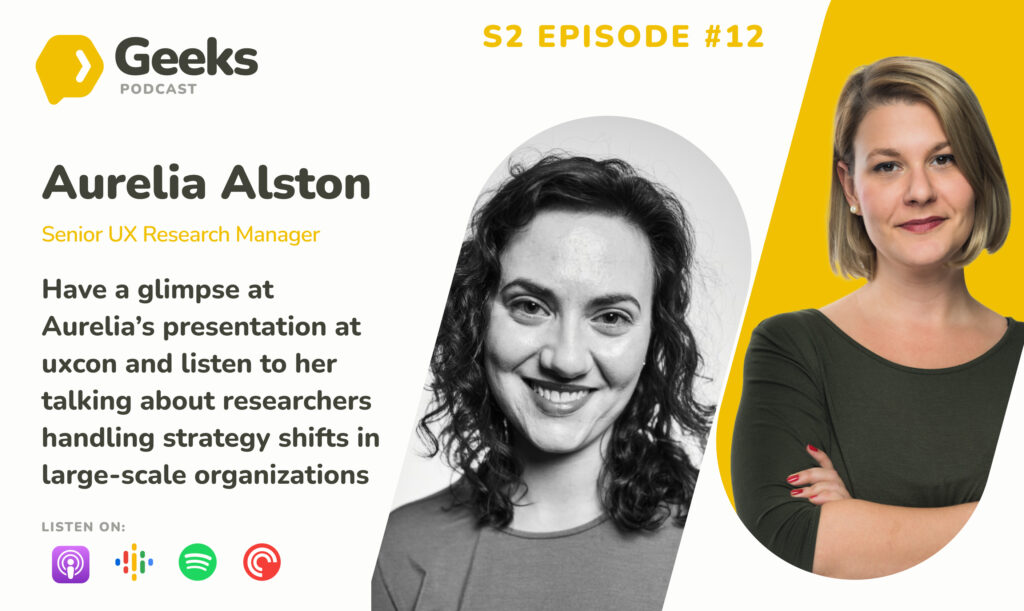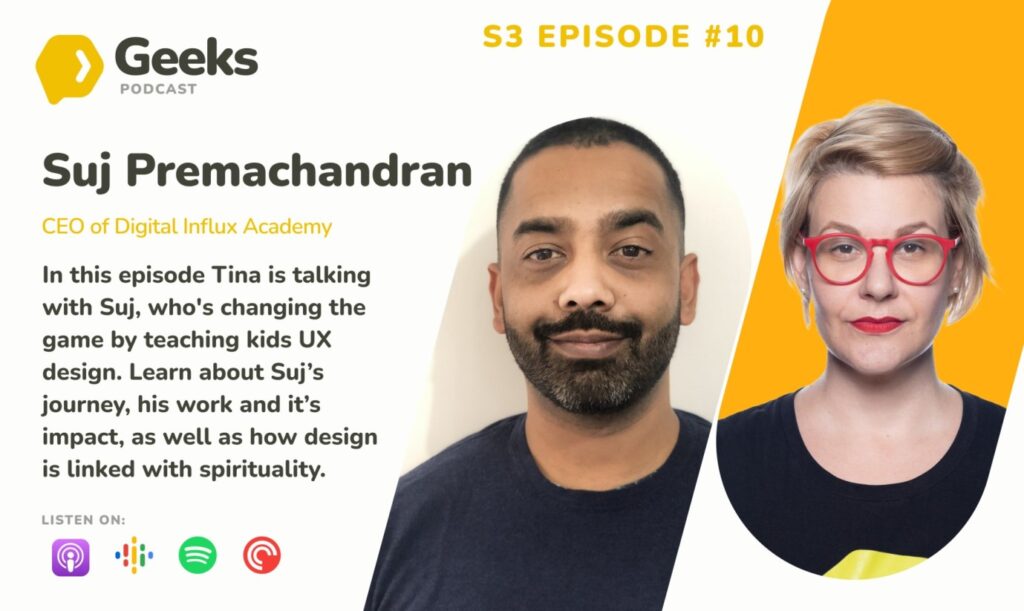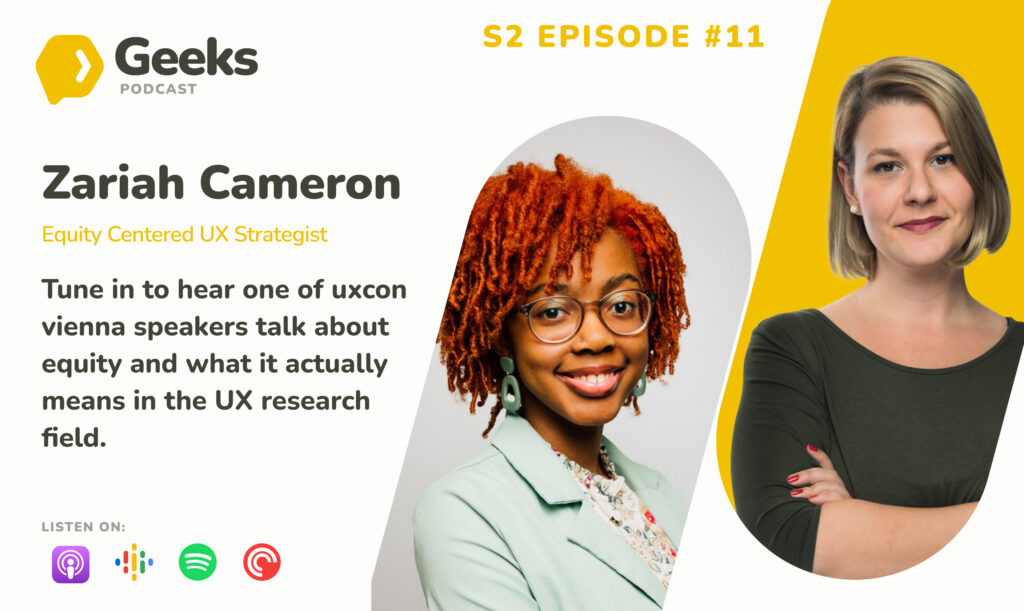Presenting “UX Research Geeks,” a podcast delving into the realm of UX research. In this episode, we follow Kevin Liang’s path as he guides students through Zero to UX, teaching not just research methods, but also cultivating leadership qualities essential for becoming impactful UX leaders.
Episode highlights
00:01:52 – Teaching Core and Leadership Skills in UX Research
00:11:43 – Encouraging Curiosity and Questioning in Teaching
00:22:09 – Embracing Flexibility in Interviews and Going Off Script
00:27:27 – The Power of Silence and Active Listening in Research
00:32:18 – Dealing with Unexpected and Challenging Interview Situations
00:36:54 – Preparing Students for the Job Hunt and Real World
00:39:20 – The Core Characteristic of a Good Researcher: Humility and Curiosity
About our guest Kevin Liang
Meet Kevin Liang, an accomplished UX researcher with a unique journey. Graduating with a Biology degree from UC Berkeley, Kevin’s path shifted to behavioral research at Berkeley and Stanford. Intrigued by UX since 2014, he persevered through challenges, mastering UX, business strategies, and more. He excelled at Google, Unity Technologies, and Uber, leaving his mark on various products and services. He also created “Zero to UX,” a comprehensive course that offers a 360-degree approach to becoming a successful UX researcher, covering advanced psychology, leadership, business strategies, and addressing nuanced challenges in the field, including mock interviews, enterprise consulting, portfolio/resume review, and consulting calls. To learn more about Kevin, you can follow him on his LinkedIn or visit his webpage.
Podcast transcript
[00:00:00] Tina Ličková:
Hello and welcome to UX Research Geeks. I’m your host Tina Ličková, a researcher and a strategist, and this podcast is brought to you by UXtweak, an all-in-one UX research tool.
This is the third episode of UX Research Geeks. Today I will be speaking to Kevin, who is a mentor and founder at Zero to UX, which is a project all about teaching the next generation of badass UX leaders.
We’ll be talking about his early experiences, how he found his calling and passion in teaching research, and you get some tips on how to line up a job in the UX industry.
Hi, Kevin.
[00:00:50] Kevin Liang: Hi Tina. Good to be here.
[00:00:51] Tina Ličková: How are you?
[00:00:53] Kevin Liang: I’m doing well. I’m doing well. Keeping busy. And California weather, you can’t complain. How about yourself?
Yeah, I just wanted to ask, how are you doing?
[00:01:02] Tina Ličková: I’m in San Francisco right now. Yeah. How are you? How are you doing?
Good. It’s not California weather, but it’s still getting better.
And then April’s playing a little bit crazy with the headaches and stuff, but we are getting there, we are getting to the California weather.
[00:01:21] Kevin Liang: Yeah.
[00:01:23] Tina Ličková: We had some talks before and what really struck my attention was that Or what I resonated with, to use a psychological term is that you are, in a way, a teacher.
And I got curious in that area about your personality and who you are, and maybe you could say, what are you teaching? And then we can get into more deeper stuff. Like why did you decide to do it – that direction.
[00:01:52] Kevin Liang: Yeah. Yeah. I love that. I teach UX research at the core of how to be a UX researcher, what it means to be a UX researcher, the technical skills and the soft skills that make a successful UX researcher so that at the high level, that’s the core of what I’m teaching for the course now.
And if. If I dig a little deeper, it’s a lot of my experiences. I teach them my failures. I show them what I’ve learned and what I have failed at before, and I have this mantra or the tagline for the classes become a badass UX leader, and I specifically say badass UX leader and not just UX researcher because I see inherently the research position requires a lot of leadership skills and qualities.
And so I take more of a 360 approach, not just the research, we can learn methods, we can learn how to do interviews and surveys, but more of a science mindset. Leading by example, showing humility, asking good questions, how to communicate, how to resolve conflicts, things like that.
So I’m having a lot of fun doing it.
[00:03:14] Tina Ličková: That is interesting. There’s one open door for me right now with leadership, and you’ve mentioned some of it, but how do you wanna get, how are you trying to develop people which come to you without. Any or very small knowledge to then become leaders.
This is really interesting.
[00:03:34] Kevin Liang: Yeah. I also mentioned my class to people, we first start off with I first start off with a question. Who do you think a leader is? What do you think of when you think of the word leader? And a lot of people think of the Thomas Carlisle example of a leadership of the great man theory, which is a man in a suit standing on stage speaking very confidently. So that’s what they think leadership is. And I, I admit that’s what I thought leadership was too. But I exposed to them different theories of leadership, what facilitative leadership is, transformational leadership and went through the theories of different leadership.
And I show them, you don’t have to be that to be a leader. And I want to break that down because in order to be a good leader, you have to have known what it’s like to be a follower. And I think that everyone has followed at some point and you can start to learn what works well.
How do you like to be treated? How should people not treat each other? And I take it from there. I take it from there.
[00:04:43] Tina Ličková: And just to understand how it fits into what the curriculum of the program that you are offering looks like? And then we can get back to the leadership.
[00:04:57] Kevin Liang: Yeah, the curriculum is something that I I took upon myself to create just notes for myself.
I have a folder in my Google Drive since 2016, and I put everything that I’ve learned, not just research, but times that I have encountered some difficulty with stakeholders. Those ones that I didn’t know how to deal with, I would just write that down, diarying it myself. So I would include that the whole curriculum starts off with just what is UX research, what’s the landscape of UX research these days?
Get them excited for the career, how it’s growing so fast and that it’s a great time to start. Great time to join. ’cause a lot of companies are hiring their first UX researchers. Then we jump into human factors psychology. I’m not a professor of psychology or anything, but there are at least some topics that are core to UX research, and I think that what we do is really human behavior psychology research.
And so I make sure they understand the fundamentals of how humans think, feel, behave, what motivates them before we jump into all the research methods. And after that, there’s a whole module on product management business thinking and believe it or not a lot of the books that I’m buying these days aren’t UX research books anymore.
They’re more product management. Not saying I’m gonna move to product management, but I found out that people say we gotta have business acumen. Now I was like I always wondered, what does that even mean? What does business acumen mean? Uh Huh? So I figured over the years it was really difficult as a junior researcher, I still had to build up my skills as a researcher while learning the business part.
But a lot of it is product management or what, how product managers think, how businesses think. So there’s a whole module on that. We talk about metrics, how to strategize, and building a vision. And then we get into the juicy part, the juicy research methods and process and everything that comes with it.
I can’t explain in, in a few minutes, but you’re probably aware that there’s a lot more than just methods.
[00:07:31] Tina Ličková: Yeah. Yeah. I can see that. And if I’m looking into it okay, you start as a total newbie, you, when you go through this kind of complex program what kind of people or what at what stage are leaving the program?
[00:07:49] Kevin Liang: Yeah. Yeah. So I get a lot of different folks in my class which is as a, as an instructor, as a teacher. It’s also a different challenge because some people, I have two tenured professors in my class who want to transition to UX research. I have people who just came out of their bachelor’s program.
And so it’s an exciting challenge to see how to teach a class of 10 people with totally different backgrounds. And so I figured the best way is just not to be the only one teaching because everyone else in the class has experiences that I don’t have. And that they don’t have either. And so we have a lot of breakout rooms, we have a lot of group discussions. And doing that is, has been just key to learning different perspectives from each other, yeah. When they get out of class I, I’ve received comments. I survey my class afterwards as a researcher would do. And they leave with a lot of confidence. There’s a lot of, there’s most of my students who come in, even if they have a job.
So sometimes I have UX researchers come to my class too, and I ask them why do you need this class? I say I think I’m doing things right, but I’m not sure I need to know, I need feedback, I need guidance. I never had formal training for this. So for many it’s building a lot of confidence, getting some experience under the belts and learning things from just someone who’s done it without, like going through grad school for example.
[00:09:35] Tina Ličková: Have you ever had, ’cause this is really interesting when you are talking about it, a formal teacher educating yourself.
[00:09:44] Kevin Liang: No. But long before I taught this class, I was always teaching. I was an organic chemistry tutor in college. And before that, I tutored people in math, so no, no teaching credentials, but I’ve always loved teaching.
[00:10:08] Tina Ličková: And where does this love for teaching come from? What is it?
[00:10:14] Kevin Liang: I think I could pinpoint it to the very moment where I fell in love with the idea of just teachers being crucial in people’s lives. It was my third grade teacher, her name was Amy Dexter. I pulled out a space book during our reading hour, and I looked at the book.
And I asked my teacher, why is Pluto a planet?
I asked, why is it a planet? Because all the outer planets are huge gas giants. Pluto, it’s just this rock ice small dinky thing. And I was like, and the orbit crosses Neptune. The orbit also was way off the, anyway, the point is none of the characteristics matched up with what the solar system planets were.
So I asked my teacher and I remember her saying: I don’t know the answer, but these are really profound questions and don’t ever stop asking these questions. So I remember for her, for me, she was a big part of wow, she encouraged me to ask questions. And even though it would’ve been crazy back in the nineties to think Pluto wasn’t a planet, she said, keep asking those.
These are good. And so I want to do the same and encourage people to ask questions and be curious.
[00:11:43] Tina Ličková: Okay. But one is the, one is the point. That you meet a really good teacher in your life who is encouraging you and leading you and guiding you through a journey, but not so many people decide to teach afterwards in a way or another.
Where, can you name any point or momentum in your life where you were like, because I remember myself. Yeah. And I was killing my cousins with it. And my brother, we had this small blackboard and I was teaching them stuff I didn’t have a clue about because I was like six. I was barely starting my school, but I was already like, yeah, this is the blackboard and writing stuff, and my mom was just face foaming going around us.
Because they were clearly suffering. And it came very naturally to me. And it’s been present all my life. But Can you tell where you decided if it was a conscious decision or just came out of nowhere?
[00:12:45] Kevin Liang: To teach UX research? It was really, Difficult to teach officially or to get people to pay me to teach.
At least I was afraid to do it. But even before the class, my own friends asked me, how did you get into UX research? I would test it out. I took them to the library- this was before covid. I took them to the library every weekend, and I gave them assignments. I prepared some decks to teach them.
[00:13:13] Tina Ličková: Wow.
[00:13:14] Kevin Liang: And they loved it. One of them landed a UX research job at Google, but I’m not gonna take all the credit. I, yeah. So I tested it out and that moment when someone was able to land a job or even land interviews or they come back and say: hey, I tried reading books or I tried watching these other things, but when you taught this, it just became clearer and that was fulfilling and it just drove me to want to teach more and just share more – share my knowledge.
[00:13:51] Tina Ličková: And you said one interesting thing. That you were afraid to teach it. Why is that?
[00:13:58] Kevin Liang: I was afraid to teach it because who was I? I didn’t think I was anyone… teaching should be teaching. I didn’t have, like I said, I didn’t have teaching credentials. I thought I needed to have a PhD or be a professor to teach.
And I, in fact, when I started my YouTube videos, I would get comments like that too. I remember one comment saying, who are you to teach this? You don’t have a PhD. So it really hurt and it actually made me pause a little bit. But then I quickly remembered there’s a lot of people who find value in this, so I can’t let one comment stop me.
[00:14:39] Tina Ličková: Yeah. The bad stuff, the negativity bias kicked in, right?
[00:14:42] Kevin Liang: Yeah, it certainly did.
[00:14:44] Tina Ličková: I’m truly amazed by what you said about people teaching each other. That’s, you are a young guy, not that young, but that’s a super mature approach.
Where does this come from in a way that a lot of teachers when you are looking at them or how they teach they’re always this big dominant character in the room. And sharing and giving and it’s one way communication. And you are relying a little bit there on group dynamics.
Yeah. And I really like the idea. And why is that?
[00:15:17] Kevin Liang: Yeah. Like you said, there are professors I’ve seen – brilliant. And I could listen to them all day. And that’s fine. I do the talking in class a lot but when there are a lot of questions, I can only share my perspective and my experiences or what I’ve heard in the past.
But I, we have a good theory of mind ability to know that people have different experiences and I want to. I want people to see as many perspectives as possible so that they can come up with their own and their own style. Yeah. So that’s why I get feedback from my students. They say, oh, these group discussions are so insightful, ’cause I would’ve never thought that way. I would’ve never thought to ask that question. So that helps them build a richer understanding of how to approach problems in different ways. And I certainly learn a lot from that too. Things, ways that I didn’t think of my students.
[00:16:26] Tina Ličková: Uhhuh, can you remember, do you have an example of a moment like, oh wow, this is really enriching myself too.
[00:16:35] Kevin Liang: Many but I guess primacy, recency effect, I just remembered ’cause I just taught a class this Tuesday. We were practicing thinking about who, what kind of participants we could recruit for a hypothetical situation. And I gave them a hypothetical situation like, oh, imagine if the hospital created something for the medical staff, who would you recruit? So I’m like, all right, hospital staff and whatnot. And my students also asked could you recruit, different hospital staff or things like that? I’m like, oh, I didn’t think about that. And I encourage them to dig a little deeper and I always say, tell us more.
Tell us more about that. And walking through those different perspectives is always beneficial to me.
[00:17:27] Tina Ličková: Also interesting is to hear that you are really looking forward to meeting those people. Look for their own style. That brings a little bit back to the leadership topic. But from a different perspective, because I was recently talking to my boss who is the head of the design, and we were a little bit gossiping about our PMs product managers.
And he really named them small CEOs. Builders of featured businesses, yeah. And how, what I’m interested in, how does research leadership collide or concludes the PM leadership?
[00:18:06] Kevin Liang: I love that. I do see them as little CEOs. Many CEOs for their own product space. Yeah.
[00:18:14] Tina Ličková: Whole universe and Yeah. I’m the king of it.
[00:18:18] Kevin Liang: Yeah. I feel like UX research is almost like the PMs get all the credit sometimes for launching products and rightfully, they plan all the strategy and all that, but many times it’s the researchers who carry the flashlight.
We’re walking through a dark cave, we’re holding the flashlights, we’re pointing the light in the direction. It’s oh, let’s do some research. We’re finding some insights from our users. This is the right way, this is not the right way. Or there could be a better way. And that. Without the research, there’s not a clear strategy.
And there’s many reasons why products fail or why companies fail, and people might attribute it to not enough funding or, not a clear strategy. But where does that all come from? It all underpins a lack of research. If there’s no understanding of your users or target users, then everything else bubbles up.
No, no strategy. You can’t get we’re really there to inform pretty much the whole strategy.
[00:19:35] Tina Ličková: Light holders That is a really nice metaphor. And how would you say, what kind of dynamics do you see between the product managers and the researchers?
[00:19:44] Kevin Liang: Mostly positive. I think there has to be a good working relationship between the PM and the UX researcher. I think as UX researchers, they are our main stakeholders. So getting them involved, getting them aligned and being aligned with them. Those are the best working relationships. When the PM is receptive to research, when they want research, they’re hungry for research, they wanna know about the users and they really put that trust in us. One of the best PMs I’ve worked with, he loved user research. In fact, one day I had, I think I scheduled myself five back to back interviews with participants. Not the smartest thing to do, but he said, Kevin, I think you, you must be tired.
Let me take one for you. I’m happy to take one so you can have a break. I. Huh. Just like teamwork and collaboration and wanting to do research as well. I, yeah, just form a good bond.
[00:20:51] Tina Ličková: Now you were mentioning how many interviews a day you should have, are there any other practical hacks you are telling your students that you would share also in this program?
[00:21:05] Kevin Liang: Yes. A ton. A ton. Like I told them one time, my record for the number of interviews in a day was 13. 13 half an hour ones, which is still a lot.
[00:21:18] Tina Ličková: But that’s still a lot! I’m just like, when did Kevin pee? Sorry for going that far, but it’s just – wow.
[00:21:27] Kevin Liang: I know I probably held it all day.
[00:21:29] Tina Ličková: Even worse. Even worse.
[00:21:32] Kevin Liang: No, I give them practical tips like that. I’m like, don’t kill yourself. I know some people will try to book as many interviews as possible, like even at 9:00 PM and I say – you could do the 9:00 PM but you wanna make sure it’s accessible to your stakeholders too. And if they’re not working at nine, they’re missing out.
So just think of them too. Don’t stress yourself out. You can spread it out over a few days. Just make sure you line with your stakeholders. I’m sure any human being would understand five or six or seven in a day is just a lot.
[00:22:09] Tina Ličková: Okay. Now we are diving a little bit into how many interviews, but when it comes to interviews as the art of conversation is there anything that you, that comes into your mind like, okay, this is the first thing. I have to tell the people so they are doing it or not doing it.
Because I also remember starting with Steve Crooks, don’t let me think and I was properly following the methodology. Yeah. And I end up being frozen in, in the conversation. And once my dad came to a testing and he was like, what is wrong with you? And I was like, okay, I’m probably not the best one in this.
I have to become a little bit smoother. So what is the advice you give there?
[00:22:58] Kevin Liang: Yeah, were you frozen because of nervousness or was it more like, there’s a script I have, I’m following this.
[00:23:07] Tina Ličková: I was learning and I was trying to go by the script, by the checklist to do everything right.
So I, and I, now, I remember it was also tied to, I was doing it for the first time and I was new at the company. I was actually chief of marketing, which was like, yeah, way far from what I do now, but that was my initial start of my career as a UX researcher. And I wanted to prove that this is a good methodology to find out stuff about our product.
So this all came together, but I was like, okay, this is what I have to do and I have to do it by every point of it. And there wasn’t any, common sense of it doesn’t make sense to ask this if he told you five minutes ago in different words. And you ask the same question and people are like, what did you ask?
[00:23:58] Kevin Liang: So I’ve definitely had the same thing. I’m following the script, I wanna make sure I answer everything. I definitely had that one. One really prominent memory that comes to mind was when I was starting off my first study at Google, my manager was watching as she was observing my user interview.
And I was so nervous. I’ve done thousands of interviews, like literally thousands. But when she came to watch me, I felt like it was a test. And so I got nervous and I didn’t perform that well because I felt like I was interviewing to perform for my manager.
I forgot about the participant. Oh, okay. And quite a few of my students had similar stories. They told me too. And I try to remember, or I try to remind them that you might have stakeholders observing, might have your manager observing, but there’s one more important person who’s right in front of you, and that’s the participant.
Just focus on them. And one thing that I learned also was the discussion guide. It’s called a discussion Guide for a reason. And it’s not meant to. Prescribe how and what order. We ask everything. ’cause conversation flows. This is organic and we change from one topic to another. When we find some somewhere to follow up or probe on, we can take the chance and do that and go off script and it’s okay.
[00:25:37] Tina Ličková: Nobody will die.
[00:25:38] Kevin Liang: Yeah, nobody will die.
[00:25:39] Tina Ličková: And I wish you were telling me, when I started with this. Yeah, 10 years ago.
[00:25:44] Kevin Liang: It’s easier said than done. Definitely, yeah, because it takes some practice, because when we’re interviewing, we have to do many things at the same time or actively listen. We have to have a good, pretty much good short-term memory so that we’re like rephrasing questions as we go.
We’re summarizing points. Our participants just said as we go, we might be checking our messages. That our stakeholders are sending us at the same time. Oh, can you ask them this? It, we’re juggling so many things in just an interview. So it takes some practice.
[00:26:22] Tina Ličková: Definitely does. And you were mentioning now focusing on the human in front of you.
How, what are your best practices in this one?
[00:26:30] Kevin Liang: The best practices? It’s active listening. This might be cliche, but don’t listen so that you can ask your next question. Don’t listen to just talk, but really listen and try to understand the research objectives.
Of course, we don’t wanna ask every single thing but knowing when to probe. That’s a skill asking why more. And that also one of the feedback that I received as an early researcher, it’s oh, ask why more. We may make assumptions like, oh, I think we could probably surmise what they meant by that, but it’s probably just better to just ask why.
And we always start with why starting with why is a good approach too. Yeah. Other tips?
What about you? Any tips that come to your mind?.
[00:27:27] Tina Ličková: This is this show about you. But now we had this really nice moment of silence. And I think it’s Steve Portugal. It’s like staying in silence. And I come from the mindfulness movement where silence is also very important. How do you work with silence? How was it for you back then? How is it now?
[00:27:53] Kevin Liang: Outside of work I’ve been called an awkward person before, so silence is my middle name.
I, yeah, silence is a, it’s a, when used correctly we, we can wait for more insights. Some more insights might come up when participants get some time and space to formulate their thoughts. ’cause not all participants can just articulate things right away.
So silence is okay. As long as they’re not sitting there for two minutes staring at each other, right? What do you want me to do? And those awkward silences are powerful. Giving them space to think. And I encourage my participants to do that too. And I wish we have internally with our own teammates that we could have more silences in meetings too.
[00:28:48] Tina Ličková: Ah, okay.
[00:28:49] Kevin Liang: Yeah. Yeah. I get this feedback. I’ve gotten this feedback from my PM before. Oh, you don’t talk enough in meetings and it’s difficult as an introvert too. I need to process things first before asking, or maybe I just wanna listen to people’s perspectives. But when no one stops, when everyone’s talking and there’s no space to, to chime in, it’s really hard to ask the right question at the right time.
And I wish more silence were available in those kinds of situations.
[00:29:26] Tina Ličková: Now you’re bringing up something really interesting. One thing is, or two things that you’re bringing up. One thing is that we live in this opinionated, very talkative culture. In the west or in Europe as well. And the second is it’s nice because also the book, which brought up this topic really imminently into the space was called Quiet.
Yes. And I’m a big fan of quiet and I’m always thinking because I’m somewhere between introvert and extrovert. I wake up and I decide what, yeah. But you, as you said right now, you are an introvert. Is there any difference on how you guide introverts when you are teaching or not, and how you guide extroverts?
[00:30:12] Kevin Liang: That’s a great question. I am not in a classroom setting, but in our one-on-ones, because in the classroom setting, it’s just hard to emulate like a stakeholder meeting. So in the one-on-one I might give the students feedback. On, ask, just focus on asking the right questions, giving space, and listening to the answers.
’cause that’s our superpowers is asking good questions. And in the culture that you mentioned, we are a very talkative culture. I feel like people feel like they have to have answers or they have to have everything off the top of their head and forget – hey, we don’t have all the answers and it’s okay.
Let’s just ask them questions. So for my students I really want to remind them, focus on the power of questions and that we don’t have to have all the answers, and you can take it at your own pace. The extroverts have no problem asking the questions. The introverts, sometimes we have to assess: when’s a good time to ask? When’s a good time to ask? I don’t want to interrupt. I wanna listen to all people’s perspectives before I raise my hand. And I think remote work has made this a lot easier for introverts. Absolutely. You can raise your hand on the camera.
You can, you could raise, you could actually put the emoji on there and raise your, or just type in your question. Yeah. So I think it’s helped. But I, yeah, again the whole premise. I don’t, I guess at the end of the day telling them to ask questions, and it doesn’t matter if you’re an introvert or extrovert, it’s our duty to, to make sure those questions come out.
[00:32:03] Tina Ličková: And I would be also interested if you are mentioning some examples to your students and of interviews who went really bad. Oh yeah. Do you have any, could you share such an example?
[00:32:18] Kevin Liang: Interviews that went really bad? The worst one that happened was I was, this was before COVID. I was inside a lab and my participant pulled out a switchblade. So I’m like oh, what do we do in those situations? Because those are what we talk about. Protecting our participants’ privacy and identity, making sure they’re comfortable. But what about what happens if you don’t feel comfortable as a researcher?
What should you do? And so I talk about those situations. I had someone come in there just – they smelled really bad, and it was this lab. I almost choked. I give examples like that and how to handle it. How to make sure you’re safe. And in the case someone pulls out a switchblade, if anyone’s listening to this if someone pulls out a switchblade – One thing to make sure is to have observers watching and make some kind of excuse to step out.
Oh, thanks for signing this. Let me get set up really quick and step out. Yeah. And then call for help. Luckily, this guy was just, he’d just pulled out a switchblade to cut off some piece of thread from his pants. I’m like, what? Why are you doing this now?
[00:33:36] Tina Ličková: Oh, okay.
[00:33:36] Kevin Liang: Yeah.
[00:33:37] Tina Ličková: Yeah. Interesting. I hope you weren’t discussing anything radical.
[00:33:41] Kevin Liang: No. It was just literally the consent form. In the first three minutes. Yep.
[00:33:46] Tina Ličková: Okay.
And now back to your students because we are also a little bit running out of time, and I know you have to go to a meeting and I don’t want you to stress out.
[00:34:01] Kevin Liang: No worries.
[00:34:02] Tina Ličková: Looking at your students, what would you say, what does the transformation from the, your programs called Zero to UX from the Zero to a Confident UX researcher look like? What phases do they go through?
[00:34:21] Kevin Liang: The phases I make them go through are just diving into the work. Dive into actually doing the work and make mistakes. I want it in the class. I encourage them to make mistakes. It’s okay. I am here to give feedback because one of the things that I’m sure a lot of UX researchers experience is imposter syndrome.
Am I doing this right? Am I doing this wrong? And without any feedback? We don’t know, and we’re gonna keep feeling that. And so I make them do it without much guidance first. And I tell them, Hey, what did you think? Share your experience with me. What did you need to know? And then I’ll give feedback on their study plans and their interview moderating skills too.
And we’ll practice. We’ll work, I’ll work on all the skills that they need to work on to get better. And once they work for real clients. So in my class, we partner with real clients.
[00:35:26] Tina Ličková: Ah, okay. Yeah.
[00:35:28] Kevin Liang: But companies like real clients, real stakeholders; they’re like UX researchers or designers, sometimes director of design, VP of user research. So yeah they, the students always get nervous, but I encourage you Hey, they’re, we are here to learn. They know we’re here to learn, but that’s okay. Just dive in. Let’s do the work. And I’m here to guide you. I. And by the end of it, they’ll feel a lot more confident because they’ve been through the whole thing and I don’t just give them simple projects I put them on complex things, and I’m there to help. I wanna, I always remind them, I’m not gonna leave you alone. So in fact, I’ll reach out to you to see if you need help and that really helps them as well. Yeah, just doing the thing is very different from just reading slides or reading books. Yeah.
[00:36:25] Tina Ličková: And the last question would be, again, about the students. Yeah. ’cause I see the big passion you have for them. They leave your program and they start to hunt for jobs, some of them. Some of them, it’s maybe complimentary to their work, some of them wanna really become UX researchers. What kind of advice are you giving them there, because then you are really in the position of a guru. You went through this hardship with me and now it’s time to leave you out to the world.
[00:36:54] Kevin Liang: Yeah, that’s a great, so in, in my class, baked into curriculum is an entire module on resumes, cover letters, mock interviews, how to conduct yourself what questions to ask to make sure you’re Getting the right company and managers and I try to set them up not just to land the job or just land the interview. My goal is to make them feel comfortable on day one of their actual job. And so I do go over all the career searching things baked into the curriculum.
[00:37:30] Tina Ličková: Yeah. And one, one of the biggest pieces of advice that you have for our listeners? What would it be?
[00:37:39] Kevin Liang: Biggest advice, it pertaining to looking for jobs? I have one. It’s. More of a mental tip or more of a mental reminder that it’ll take some time. I personally went through 70 rejections to find my first job by the 20th.
I was already trying, I was already wanting to give up. It’s tough. It’s tough to receive a lot of rejections, but the reminder is as long as you keep an open mind, take notes on what you think you did well, what you didn’t do so well on what you struggled with. Ask for feedback. The interviewers might not give you feedback, but just be your own worst critic and do mock interviews with people.
Get an assessment for people who, with people who can give you feedback and keep going. I. Because the person from the last interview is not going to be the same person going into the next interview. You’re only gonna get better at this. Because interviewing is a different skill. You might be a great researcher, but the interview process is just an entirely different skill.
So don’t give up and keep going.
[00:38:59] Tina Ličková: Okay. I still have one question. Yeah. I’m doing this a lot. Our producers are thankful. But you mentioned the mentality of the in, in the job hunting search but maybe what would you say is the right mentality of a researcher?
[00:39:20] Kevin Liang: Ooh, I love that question. I believe that the core characteristic that underpins a good, not just researcher, but a scientist is that we’re kind.
We’re pretty much scientists with humility. If we have humility, we have curiosity. If we have humility, We have an open mind, we want to ask questions. And if we have humility, we begin to realize that we don’t have all the answers or solutions, and that’s okay. So yeah, being humble as you go along.
’cause even today, these days I’ve been in this for about. Almost eight years at UX Research, but I’m still learning. I’m still learning a lot from my students and new leaders in industry. So being humble is the best way to grow.
[00:40:24] Tina Ličková: I love it because it’s definitely going in that direction. I think about it as when you were mentioning confidence, I think confidence is a little overrated.
The talkative and loud culture. And the, but it, when it’s in the combination of the humbleness Yeah. It’s the right mix. And I love the closing words of humility. That’s really, I. Thank you for that. Thank you. Yeah. It seems like you’re a great teacher.
[00:40:48] Kevin Liang: No, thank you. Thank you. And you’re a great interviewer.
[00:40:52] Tina Ličková: Oh, thank you.
[00:40:52] Kevin Liang: Great question.
[00:40:53] Tina Ličková: Last but not least, so do people know where to follow you?
[00:40:57] Kevin Liang: Yeah, I’m on Instagram, LinkedIn, YouTube. You can find Zero to UX. Yep.
[00:41:04] Tina Ličková: Okay. Great. Thank you for the beautiful conversation. I am personally very touched. That’s always a nice ending.
[00:41:11] Kevin Liang: Likewise, Tina. It was such a pleasure to speak with you and all the great questions. It made me think a lot, so thank you.
[00:41:18] Tina Ličková: Good, thank you very much again.
Thank you for listening to UX Research Geeks. If you like this episode, don’t forget to share it with your friends. Leave a review on your favorite podcast platform and subscribe to Stay updated when a new episode comes out.
💡 This podcast was brought to you by UXtweak, an all-in-one UX research software.



